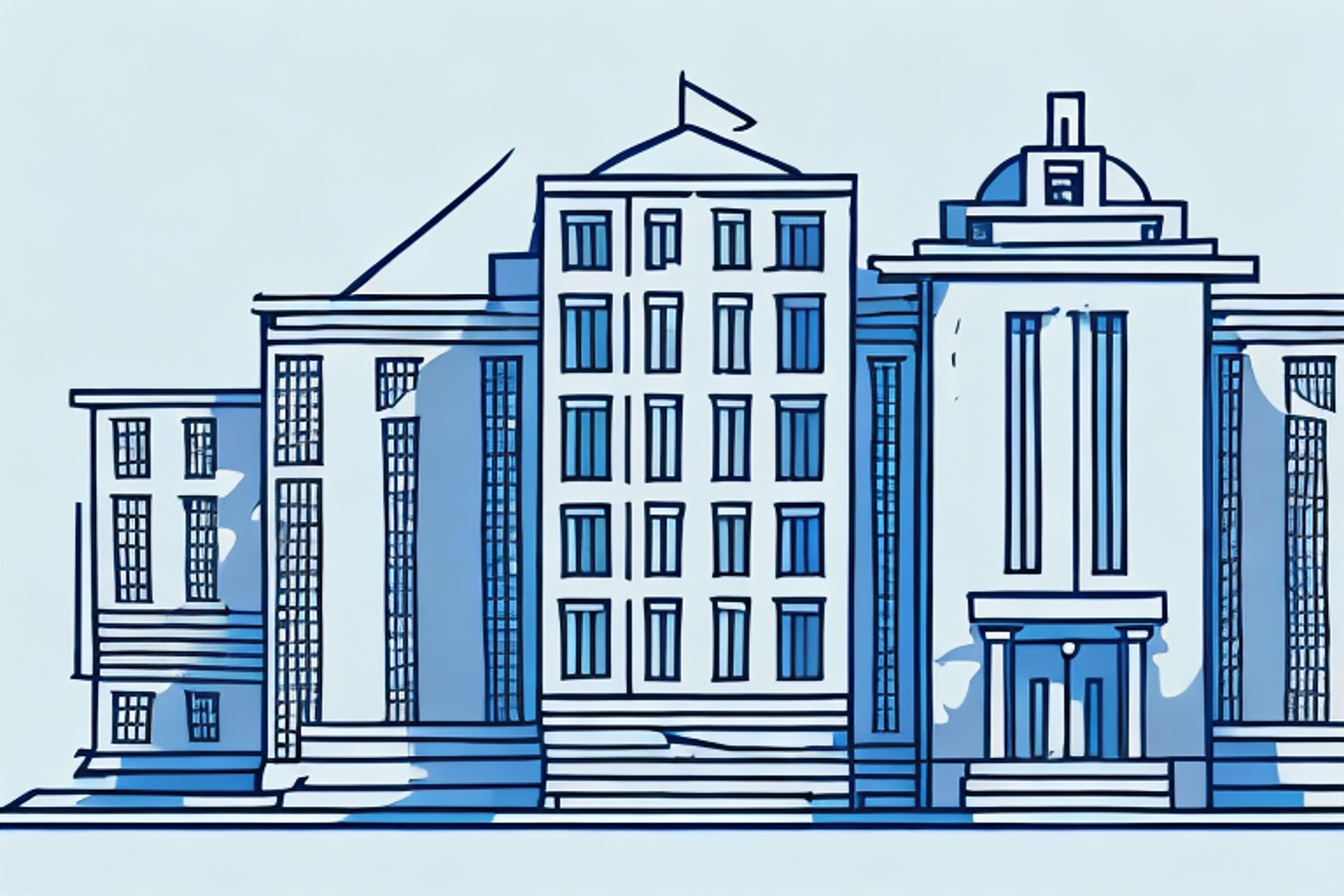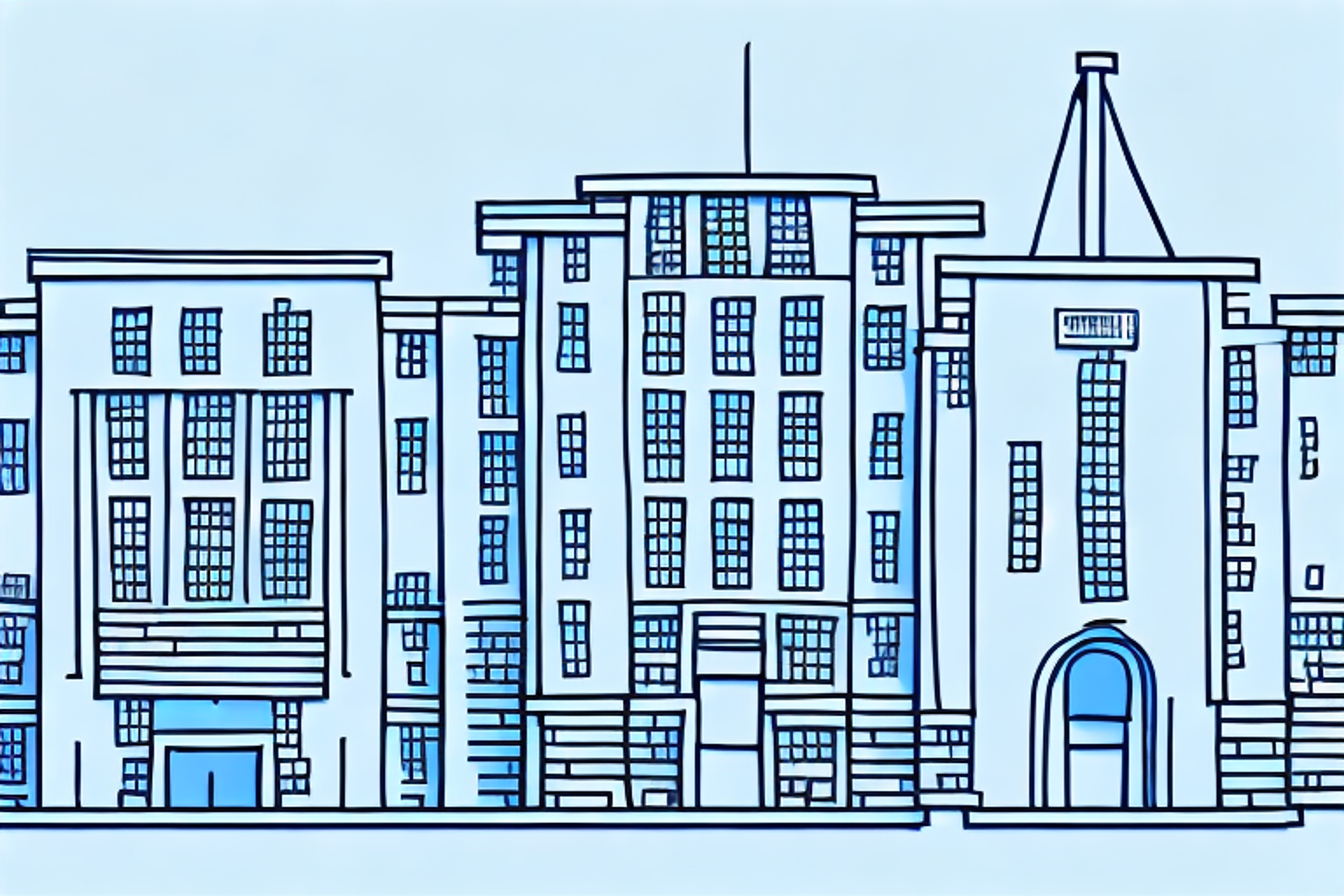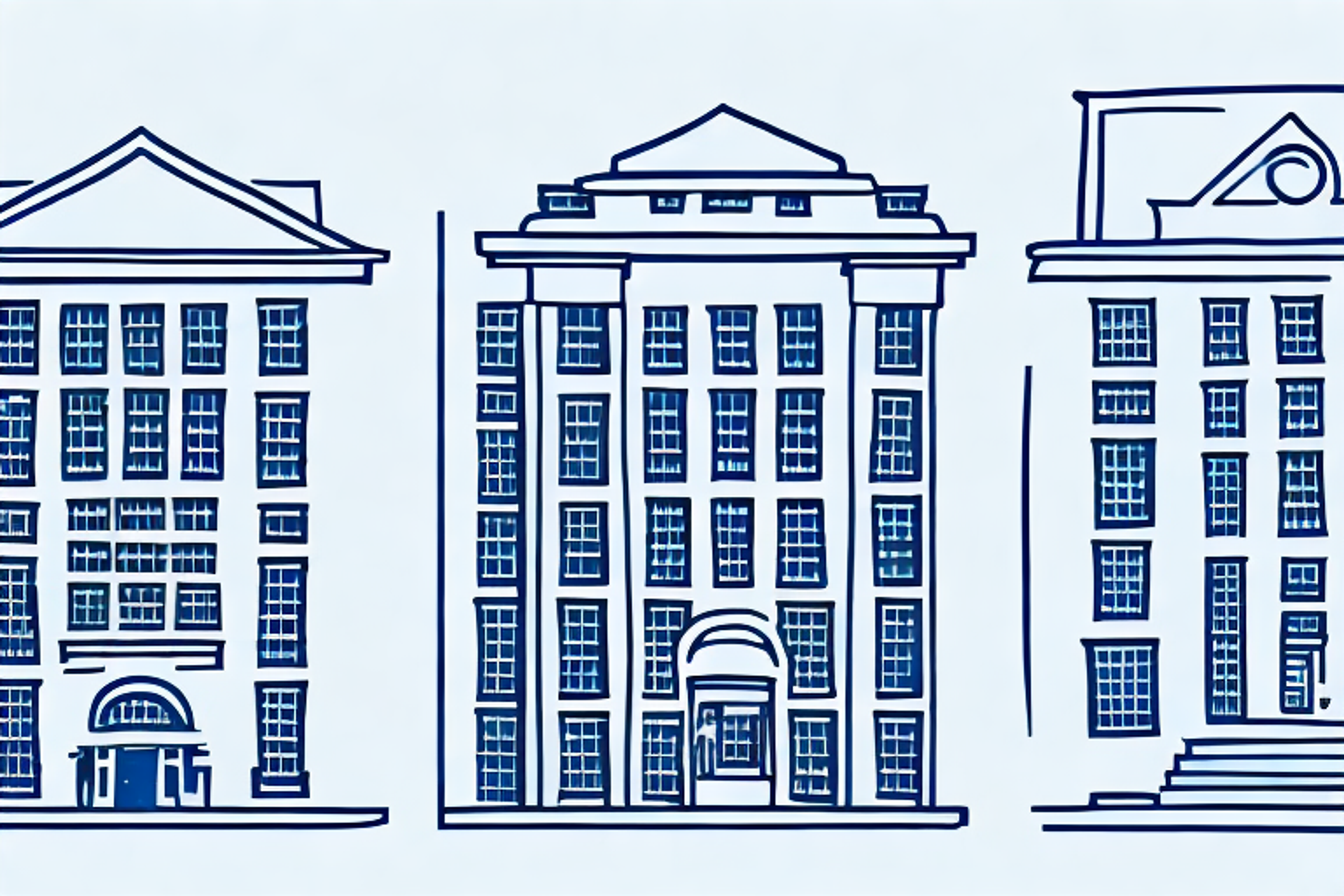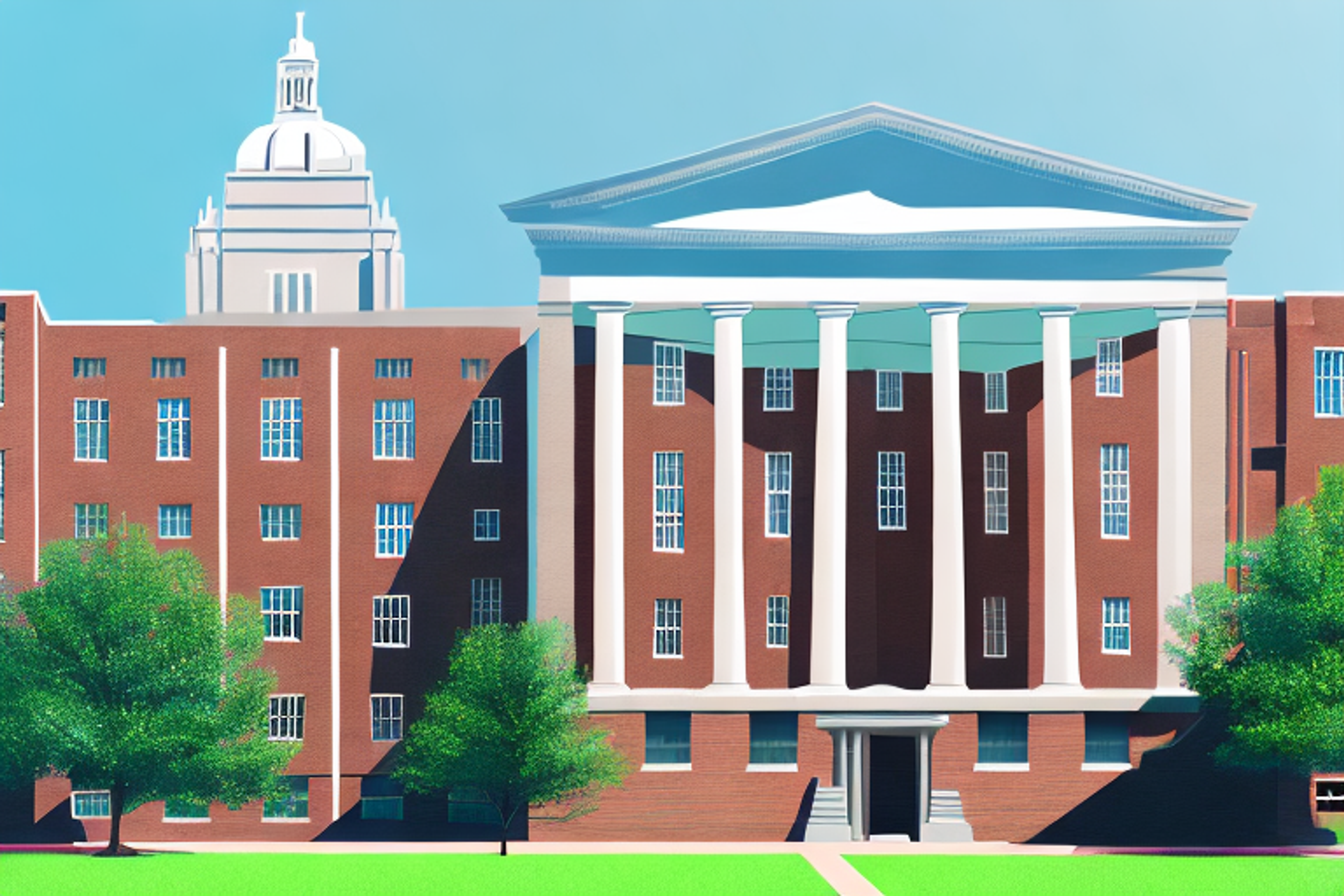University of Chicago Law School Vs. New York University School of Law: An In-Depth Comparison
Are you considering law school and wondering which one to choose? Look no further than our in-depth comparison of the University of Chicago Law School and New York University School of Law.
Posted March 6, 2025

Table of Contents
Free Event

Featuring Indrani S.
Law School Admissions: What to do when you are waitlisted
Starting Tuesday, April 8
11:30 PM UTC · 60 minutes

Featuring Indrani S.
Studying law at a reputable institution can set you on a path to a rewarding career. Two schools that come to mind for a competitive education in the field of law are University of Chicago Law School and New York University School of Law. It can be challenging for prospective students to choose between the two, given their differences in location, tuition, faculty, curriculum and more. This in-depth comparison delves into the similarities and differences between University of Chicago Law School and New York University School of Law, to help you make an informed decision.
Location and Campus Comparison
The location of a law school can have a significant impact on students' overall experience. University of Chicago Law School is situated in the Hyde Park neighborhood of Chicago, Illinois, while New York University School of Law is situated in the Greenwich Village neighborhood of New York City. Both cities provide students with unique opportunities. Chicago offers strong ties to the Midwest's legal community, while New York City provides access to some of the world's largest law firms, courts, and corporate headquarters.
Hyde Park is a quieter, more residential area that provides a campus feel by offering a library, dining hall, and common space for students, while Greenwich Village is a thriving hub of activity with a plethora of restaurants, cafes, and shops. NYU's law school campus is also more spread out, with some buildings located blocks away from one another.
Tuition and Financial Aid Offerings
For many students and families, one of the most significant factors in choosing a law school is the cost of tuition. According to the National Center for Education Statistics, the annual tuition and fees for the University of Chicago Law School for the 2020-21 academic year are $71,820, while the annual tuition and fees for NYU School of Law are $72,894.
Both schools offer a variety of financial aid options to help students finance their law degree. These include need-based scholarships, merit-based awards, public interest grants, and federal student loans. Prospective students should speak with their respective financial aid offices for further information regarding available financial aid options.
Faculty Size and Diversity Comparison
The quality of the faculty can often make or break a law school experience. University of Chicago Law School has about 76 full-time faculty members, while NYU School of Law employs about 152 full-time faculty members. Both schools boast highly respected scholars and legal experts who bring a range of perspectives to the classroom.
In terms of diversity in faculty, both schools have made strides in recent years, but there is still room for improvement. University of Chicago Law School has a student body and faculty that are predominantly white, while NYU School of Law's student body and faculty are slightly more diverse.
Curriculum Offerings and Specializations Comparison
Both law schools have extensive curriculums that allow students to specialize in areas of study that appeal to them. University of Chicago Law School offers specialized areas of study such as Corporate Law, Law and Economics, International Law, and Public Interest Law. NYU School of Law offers specialized areas of study such as Business Law, International Law, Intellectual Property Law, and Environmental Law.
At both schools, students can access a wide range of courses in their specific areas of study as well as clinics, journals, and research opportunities. However, University of Chicago Law School requires students to complete a rigorous "Foundations" curriculum during their first year, while NYU School of Law requires students to complete a Lawyering Program, which is a first-year writing and research course.
Bar Exam Pass Rates for Both Schools
The bar exam pass rate is an essential metric for students looking to enter the legal profession. According to the American Bar Association, University of Chicago Law School had a 94.38% first-time pass rate for the Illinois Bar Exam in 2019, while NYU School of Law had a 96.25% first-time pass rate for the New York Bar Exam in the same year.
It's worth noting that the bar exam pass rate can vary from year to year depending on various factors. However, both schools' consistently high rates over the past few years are impressive and speak to the quality of education provided.
Student Life and Extracurricular Activities Comparison
Law school can be a challenging time in a student's life, but extracurricular activities can provide a much-needed break from studying. University of Chicago Law School offers various student organizations to get involved in, such as the Women's Mentoring Program, Law Students for Reproductive Justice, and the Christian Legal Society.
NYU School of Law also has a diverse range of student organizations, including the Latinx' Student Association, Law Students for Human Rights, and the Jewish Law Students Association. Additionally, both schools offer opportunities for students to participate in moot court competitions, join law journals, and partake in legal clinics.
Career Placement and Job Prospects for Graduates
The ultimate goal of most law students is to land their dream job after graduation. University of Chicago Law School and NYU School of Law are both top-tier institutions that attract some of the best legal minds in the country, making them well-connected with prestigious law firms and employers.
According to the law schools' respective websites, University of Chicago Law School has an employment rate of 89.59%, while NYU School of Law has an employment rate of 94.51%. Graduates from both schools go on to have successful careers in a range of legal fields, including law firms, government agencies, non-profits, and academia.
Notable Alumni from Both Institutions
Both law schools have produced some of the nation's most notable legal minds. Some notable University of Chicago Law School alumni include former President Barack Obama, former Supreme Court Justice Antonin Scalia, and former United States Attorney General Eric Holder.
Some notable NYU School of Law alumni include former New York City Mayor Rudolph Giuliani, the late Supreme Court Justice Ruth Bader Ginsburg, and former Attorney General of the United States Robert F. Kennedy.
Admissions Process and Selectivity Comparison
Admission into prestigious law schools can be highly competitive, and both University of Chicago Law School and NYU School of Law are no exceptions. According to their respective websites, University of Chicago Law School accepted roughly 20% of their applicants in the 2020-21 academic year, while NYU School of Law accepted about 32% of applicants.
Prospective students can find detailed information on the admissions process and requirements, including standardized test scores, undergraduate transcripts, letters of recommendation, and personal statements, on each law school's website.
Student-to-Faculty Ratio Analysis
The student-to-faculty ratio is an important figure to consider when assessing the quality of education students receive at a law school. University of Chicago Law School has a student-to-faculty ratio of 4.9 to 1, while NYU School of Law has a student-to-faculty ratio of 5.7 to 1.
Both law schools have highly qualified faculty members who provide attentive and personalized instruction to their students. The slightly lower student-to-faculty ratio at University of Chicago Law School means that there is potentially more opportunity for one-on-one communication between students and professors.
Research Opportunities at Both Law Schools
Research is a crucial component of a law degree, and both University of Chicago Law School and NYU School of Law offer students robust research opportunities. University of Chicago Law School is home to the John M. Olin Program in Law and Economics, the Coase-Sandor Institute for Law and Economics, and the University of Chicago Law Review.
NYU School of Law has several research centers, including the Institute for International Law and Justice, the Center on Civil Justice, and the Brennan Center for Justice. Both law schools also offer students access to extensive libraries and databases to aid in their research efforts.
Diversity and Inclusion Initiatives at Both Institutions
In recent years, there has been a growing emphasis on promoting diversity and inclusion within higher education institutions, including law schools. Both University of Chicago Law School and NYU School of Law have made strides in this area.
University of Chicago Law School has established a Diversity and Inclusion Committee and has worked to diversify its student body and faculty through various initiatives. NYU School of Law has established a Center for Diversity, Inclusion, and Belonging to promote inclusive practices, educational programs, and research initiatives.
The Importance of Networking in Legal Education: A Comparative Analysis
The legal profession is highly focused on networking, and law school provides an excellent opportunity to begin building these connections. Both University of Chicago Law School and NYU School of Law have strong alumni networks that can be helpful for current students and graduates.
The University of Chicago Law School Alumni Association provides various networking opportunities, including mentorship programs and alumni events, while the NYU School of Law Alumni Association offers job boards, mentorship programs, and social events. Both schools also host career fairs and recruitment events for their students.
Faculty Research Output and Reputation Comparison
The research output and reputation of a law school's faculty can have a significant impact on the quality of education provided to students. University of Chicago Law School and NYU School of Law are at the forefront of legal scholarship and boast highly respected faculty members.
University of Chicago Law School faculty have made significant contributions to the fields of law and economics, constitutional law, and philosophy of law. NYU School of Law has faculty members who specialize in areas such as international law, intellectual property law, and legal history. Both schools have produced groundbreaking research in their respective fields.
Technology Integration in Law School Curriculum: A Comparative Study
The use of technology in legal education has become increasingly important as we move further into the digital age. University of Chicago Law School and NYU School of Law both integrate technology into their curriculums to enhance students' learning experiences.
University of Chicago Law School's Law and Technology Initiative provides educational programming on how technology has and is affecting legal practice, while NYU School of Law has established the Information Law Institute, which studies the intersection of law, policy, and technology. Both schools also have robust resources for online legal research and writing.
Law Journals, Moot Court, and Legal Clinics at Both Schools: A Comprehensive Review
Law journals, moot court competitions, and legal clinics are all essential components of a law school education. University of Chicago Law School and NYU School of Law have extensive offerings in these areas.
University of Chicago Law Review is one of the most prestigious law journals in the country, and the school has several moot court competitions and legal clinics, including the Institute for Justice Clinic on Entrepreneurship and the Federal Criminal Justice Clinic. NYU School of Law has several prominent law journals, including the New York University Law Review and the NYU Environmental Law Review, as well as moot court competitions and a range of legal clinics, including the Juvenile Defender Clinic and the Global Justice Clinic.
Conclusion
Choosing the right law school is a significant decision, and it's important to consider all of the factors that will impact your education. University of Chicago Law School and NYU School of Law are both exceptional institutions that offer students opportunities to excel in their legal studies. By comparing factors such as location, tuition, faculty, curriculum, career prospects, and more, students can determine which school is the best fit for their individual needs and aspirations.











